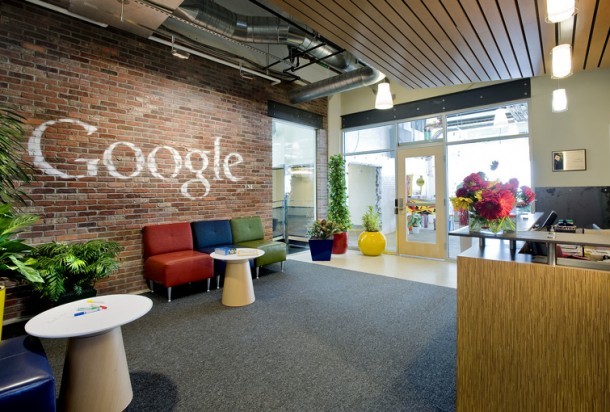Expert Opinions on Google’s 20% Rule

In IT, productivity is directly dependent on the developers. Therefore, companies are looking for and sometimes find very paradoxical ways of motivating, compensating and other optimizing the labor of the knights of the intellectual order.
However, they are not all, but only the most zealous pioneers. And after that, the public enthusiastically watches what is happening in the same Google. Someone wants to use programs like the “20% rule” in their company, and someone is skeptical. Consensus usually does not happen.
')
We asked the experts to comment on this topic.
How effective is this rule? For which companies do these innovations work best? Are large Russian companies ready for such an experiment? Which Russian IT companies have already implemented this?
“Google launches thousands of mini-projects, which themselves have been given to prove their profitability. Of the hundreds of projects launched, only a few will prove to be truly worthwhile, and 2-3 will set a new trend. This is similar to two types of resource extraction: intensive (deep) and extensive (breadth). Google is digging in breadth and no, no, and even stumble upon a pair of top quality diamonds. We need to understand that not every company can afford to bury hundreds of projects in order to find a few worthwhile ones, ” wrote in 2014 a Geektimes user who had an internship at Google.
The “20% rule” was once cited as an example of an effective approach to innovation in Google. Each Google employee had the right to devote 20% of their working time, that is, one day a week, to third-party projects. Thanks to the 20% rule, such projects as Gmail and AdSense, Google Cardboard, as well as hundreds of small projects, many of which went to Open Source, came into being.

“In Google, the darkness of small teams, which are formed from 20 percent of the projects. With such a huge number of small start-ups within a company, it is difficult for everyone to find a logical place in the hierarchy. In addition, the essence and purpose of some teams change over time. From here and small disorder », - the user adds.
Maxim Nalsky , CEO Pyrus

The rule of 20% of Google’s company is not about third-party projects, because the results of the work belong to the corporation.
In our company there is another rule: the developers themselves plan 100% of their tasks. We have an iterative development. On Mondays, we meet, and each developer must come with his plan for the week. Everyone knows the global plans of the company: when the release and what will be included in it. But not managers should tell developers what to do, but they should come and say: “I will do this.” At meetings, we moderate and adjust plans and priorities.
Why do we have this and why did Google make the “20% rule”? The reason is that companies compete for the best personnel. A really strong developer does an order of magnitude more than the industry average. The difference is really an order of magnitude - x10. Simply, there are things that one developer can do, but 10 developers will never do. There are such talents, and employers are fighting for them.
Google attracts the best developers from around the world. Creative people can not be forced to do what they are not interested. They need to be given a certain freedom.
As for the rule itself, there are different opinions. It is believed that in Google only 10% of employees use this rule. When Marissa Meyer came to Yahoo !, she was asked: “When will you make this rule of 20% at Yahoo?”. She replied: “I’ll tell you a terrible secret about Google. This rule is not 20%. This rule is 120%. ”
Personally, I am convinced that it’s impossible to do anything worthwhile, working 20% of the time, for a year. When you create a new product, you lay out 200%, you live this idea and do it from morning to evening. Therefore, during these 20% of the time, you can only grope for some idea and convince your management to allocate resources.
Jovan Savovich, Futuriko

It seems to me that in our company everything is in control of all 100% of its time, at least we are striving for this and recently consciously, as part of the mechanics of the process.
And I don’t know if this is correct in terms of efficiency, and I’m not sure about other companies how they would go. But we try to decide for themselves what is important, everything.
Ilya Sachkov , Group-IB

I think this rule in Google did not appear from the first day of the company's existence. And I think that it appeared on the day when the company was in a steady state, and it needed growth, and it was ready to attract startups.
Of course, the best startups can give birth, including internal employees. But, for us, for example, at the current moment it is much more important to improve our own products, which have not yet fully captured the market. Some of them are at a very early stage. Therefore, for our stage of development of the company, it is more important for employees to improve existing products and expand their functionality.
For companies such as Mail.ru or Yandex, such a strategy and such projects are probably possible. I have not heard of such a thing in Russia, but such a culture resembles Yandex.
Alexey Krainov , Riot Games Russia Director

I can only say for Riot Games: we work on Free Schedule - the time of work, the number of vacations and time off - at the discretion of the employee. Globally and locally in the Moscow office.
You need to understand that this is possible only among really strong pros and responsible people. They can already dispose of this approach with value both for themselves and for the company.
Vladislav Kochetkov, FINAM

In a financial company, employees tend to work under tight time constraints. And even if they are given an order of 20% of their time for creativity, the majority will prefer to use this time to solve current problems.
But we have economists, strategists and analysts who are engaged in research and development of concepts, design of new products and other such creative ideas.
Such a rule is theoretically effective for companies with an ad hoc organizational structure, as Cameron and Quinn call it. That is, for young, rapidly growing companies, where KPIs change frequently. If KPIs were tough, then instead of implementing their own ideas, employees would try to increase the indicators set by the managers (no matter how adequate these indicators are to the market situation).
In practice, this rule has manifested itself mainly in large profitable IT companies that rent the so-called “innovative rent”, i.e. make a profit due to the fact that they were the first in some direction.
Such large IT-companies often served as cemeteries for the ideas of their employees and a source of personnel for competitors. Usually, the history of Xerox is given as an example, where many useful innovations were invented, but only a small part of it was brought to implementation.
In small market-oriented companies, R & D is rarely conducted, so this rule is not viable. Small companies are not so marginal (like Google or Yandex) to take the risk of inventing new things often. They copy more often. And in order to clone and adapt the ideas of giants, it is necessary not so much to supply employees with working time as, on the contrary, to monitor its target use. As for startups, it is even more important for them that the team is focused on one goal.
In Russia, a similar program [by type 20%] was implemented in the company “Yandex”. In particular, as far as I know, this is how the Webmasters School project appeared.
Arthur Sakharov , Redmadrobot

Dry-cleaner, gym, kindergarten, car-care center - infrastructure, which is overgrown with IT giants, so that employees spend as much time as possible in the company's office. Eric Schmidt, by the way, speaks about the “120% rule” - 100% of the time developers devote to work, 20% to their projects, which, due to the environment formed in an IT company, take up much less resources. In reality, Google engineers spend even more time developing, because they just don’t need to deal with everyday problems at home.
In Redmadrobot, developers are not only engaged in commercial projects and not only coding. They participate in R & D activities, automate processes, optimize development, speak at conferences, write articles on Habr — all this takes time. We do not have a clear rule of 20% because in fact there isn’t anywhere. We try to build a structure and plan work so that employees do what benefits the company, without strong constraints. Naturally, it turns out that novice developers are almost fully engaged in projects and pumped into them, while the coolest devote up to 60% of their time to activities aimed at development and future. It cannot be otherwise, the company is a testing ground for the development of its employees, for mastering new technologies, from which new products and solutions then emerge, and the task of the built management system is to contribute to this development.
Ruslan Fazliev , Ecwid

Business requires 100%.
Google de facto closed the “20%” initiative. Only absolute focus makes victory possible. How effective would it be if we entered in? And we introduced. X-Cart, a PHP e-commerce platform, had the opportunity for employees to incubate their projects. No one could. Projects that were actually successfully incubated by X-Cart - Ecwid, Tittygram, were made by more than one employee, and the company donated resources to them. The singleton can conduct reconnaissance, but victory only happens when the company begins to take the project seriously.
In a small company, the rule of 20% is a disaster, start-ups cannot afford to lose 20% of their productivity. And if people want to cut some other products besides the main one, this is a reason to think: is the main thing interesting, is it not time to “shake everything up”.
In a large company, a useful exhaust from 20% can occur only when it seriously begins to support isolated undertakings. Will support all - blur. As a result, it turns out that the “20% system” de facto cannot work: employees saw their emission projects.
What really works is thematic hackathons from time to time, and we arrange them.
In 2004, Larry Page and Sergey Brin for the first time stated that the company uses the “20% rule”.
In 2013, the media wrote that employees were deprived of the right to open their own projects according to the “20% rule”. With the arrival in the main armchair of the corporation Larry Page policy has changed dramatically. A new course was taken to maximize the efficiency of development with a small number of areas, and not to diversify projects.
Cancellation of the “20% rule” began with the fact that in 2012, developers were obliged to receive special permission for third-party projects from a manager. Here's what the Development Director of Google+, James Whitteker, wrote about this in 2012, explaining the reason for his departure:

“Under Eric Schmidt, advertising was always in the background. Google was run as a factory of innovation, encouraging employees to do business with founders' rewards, bonuses and 20% of the time. Advertising revenue gave us a reserve for thought, invention and creation. Forums like App Engine, Google Labs and Open Source were the springboard for our inventions. The fact that all this was paid for by an ATM full of advertising spoils did not reach us.
Probably, the engineers who developed advertising in particular came to this, but everyone else was convinced that Google was primarily a technology company; a company that hired smart people and staked a major stake in their ability to innovate.
Strategically important products like Gmail and Chrome came out of this innovation machine: products that were the result of initiatives at the lowest levels of the company. Of course, such an irrepressible, innovative spirit sometimes leads to setbacks. There were such and Google, but the company always knew how to quickly fall, get up and draw conclusions.
In such circumstances, you should not be part of any special “inner circle” for success. You should not be lucky to get a cool project where you can make a career. Anyone with ideas or the ability to collaborate can contribute their share. During this time, I had several opportunities to leave Google, but I could not imagine a better place to work. But as they say, it was then, and now - it is now. "
Then, Google formed a powerful analytical department that analyzed staff performance. To work with maximum efficiency, employees need to devote 100% of their time to the main project. Therefore, those wishing to apply for the opening of the project according to the “rule of 20%” became less and less.
Formally, this rule continues to exist in the company, but in fact its application is not approved.
Source: https://habr.com/ru/post/309630/
All Articles